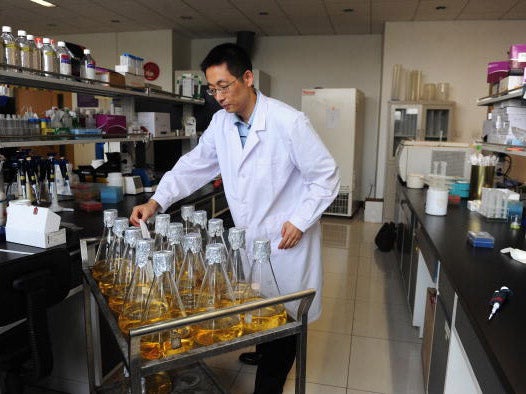Chinese scientists believe they may have found a way of making beer good for you
Scientists in Shanghai have used a gene in experiments which could make drinking healthy and prevent alcohol-related diseases

Researchers in China believe they may have found a way of making beer good for you.
Scientists at the Chinese Academy of Sciences experimented on rats using a gene commonly found in humans and animals to turn alcohol into glycogen rather than fat in the rodents’ livers.
The findings, published in the latest issue of the Journal of Lipid Research and reported in the South China Morning Post, could lead to the development of "new medicines that can reduce the negative health effects of alcohol", says Professor Yan Chen, the lead scientist behind the research.
Professor Chen compares fat to coal and "dirty" energy: "It releases lots of pollutant when it ‘burns’, just like coal."
"We are on the verge of shifting from dirty to clean energy, it’s time to make the same kind of change inside our body too with the shift from fat to glycogen", the nutritional scientist said.
Drinking can lead to a build-up of fat on the liver, which can lead to cancer and other serious diseases. In contrast, glycogen is "cleaner" because it stores energy in both the liver and muscles.
According to the research, the gene used in the study may one day be able to cure alcohol-related diseases such as liver damage – and maybe even combat conditions such as diabetes.
Writing for The Independent last year, Nick Knight, a London based doctor explained the positive and negative affects of alcohol consumption.
He wrote that moderate amounts of alcohol can be relaxing, aid social interaction, and even prevent heart disease.
“It relaxes you by travelling to your central nervous system where it depresses activity by interfering with chemical neurotransmitter signals, in particular, Gamma-Aminobutryric Acid (GABA)”, Dr Knight said.
The alcohol causes the communication between your brain cells to become impaired but because it also promotes relaxation, it can improve your blood pressure, preventing possible heart attacks and strokes.
Meanwhile, in May this year, it was reported that drinkers in England may be consuming the equivalent of 12 million more bottles of wine every week than previously thought.
Researchers from John Moores University, Liverpool, and Bangor University, said while surveys of alcohol consumption usually only record information about typical drinking, a new study found "missing units" after asking people to record their "special occasion" drinking as well.
Subscribe to Independent Premium to bookmark this article
Want to bookmark your favourite articles and stories to read or reference later? Start your Independent Premium subscription today.

Join our commenting forum
Join thought-provoking conversations, follow other Independent readers and see their replies